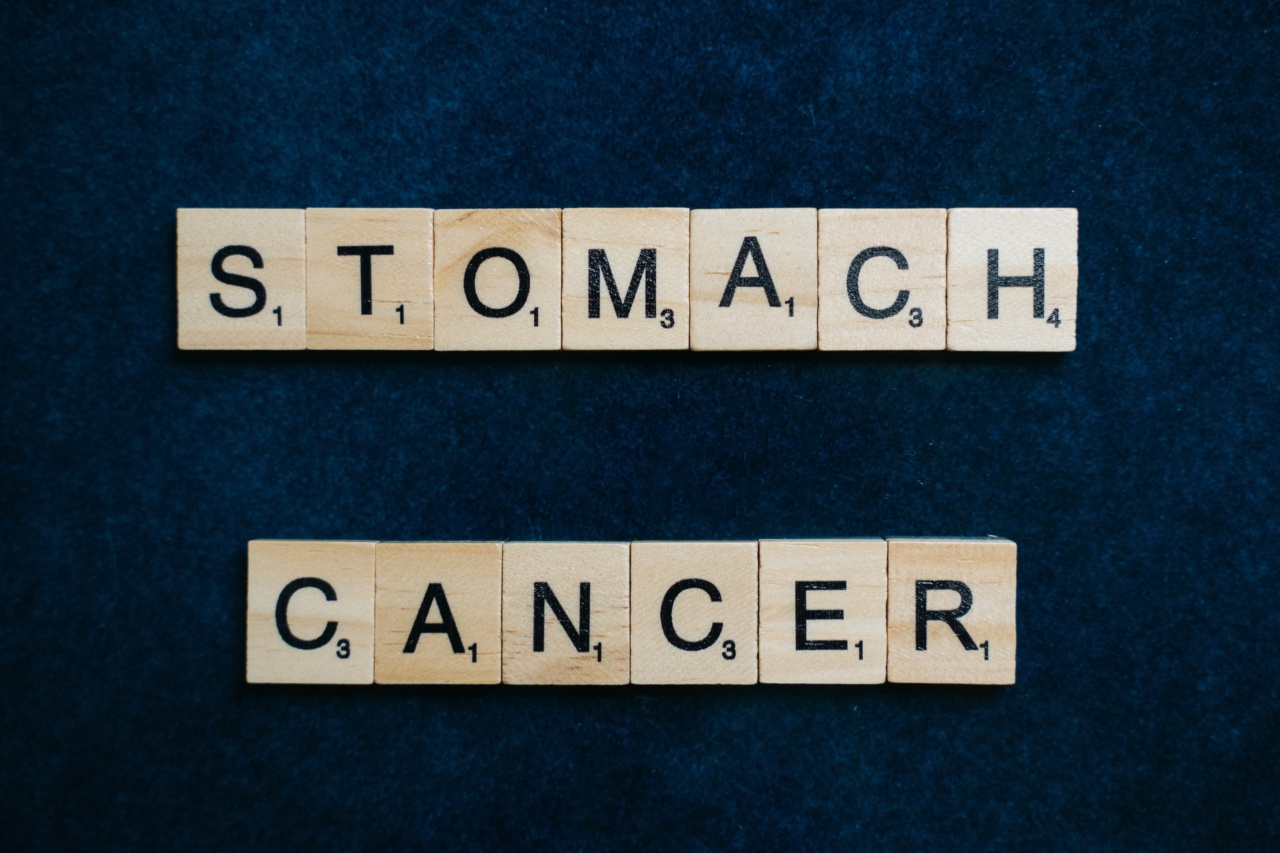Stomach cancer, also known as gastric cancer, is a deadly affliction that affects millions of people worldwide. This silent killer often goes undetected until it reaches advanced stages, making it one of the most difficult cancers to treat.
In this article, we will explore stomach cancer, its causes, symptoms, treatment options, and preventive measures.
What is Stomach Cancer?
Stomach cancer occurs when cancerous cells form in the lining of the stomach. These cells grow out of control, leading to the formation of tumors. Stomach cancer can spread to other parts of the body, such as the liver, lungs, and nearby lymph nodes.
Causes and Risk Factors
The exact cause of stomach cancer is still unknown, but several factors increase the risk of developing this disease. Some common risk factors include:.
- Helicobacter pylori (H. pylori) infection: This bacteria is a major cause of stomach ulcers and can lead to the development of stomach cancer.
- Smoking: Tobacco smoke contains harmful chemicals that can damage the stomach lining, increasing the risk of cancer.
- Diet: A diet high in processed foods, smoked meats, pickled vegetables, and low in fruits and vegetables, is associated with an increased risk of stomach cancer.
- Age: Stomach cancer is more common in older adults, with the average age of diagnosis being 68.
- Gender: Men are more likely to develop stomach cancer compared to women.
- Family history: If you have a family history of stomach cancer, you have an increased risk of developing the disease.
Symptoms and Diagnosis
Stomach cancer often does not cause any noticeable symptoms in its early stages, which makes it challenging to detect. However, as the disease progresses, the following symptoms may occur:.
- Indigestion or discomfort in the abdomen after eating
- Nausea and vomiting
- Unintentional weight loss
- Feeling full or bloated after eating small amounts of food
- Black stools
- Abdominal pain
If you experience any of these symptoms persistently, it is important to consult your doctor for proper evaluation. The earlier stomach cancer is diagnosed, the better chances of successful treatment.
To diagnose stomach cancer, your doctor may perform various tests and procedures, including:.
- Endoscopy: A thin tube with a camera on the end is inserted into the stomach through the mouth to examine the lining and collect tissue samples.
- Biopsy: During an endoscopy, the doctor may take small tissue samples (biopsies) for examination under a microscope.
- Imaging tests: X-rays, CT scans, or MRIs may be conducted to determine the size and location of the tumor and if it has spread to other parts of the body.
- Staging: Once stomach cancer is diagnosed, staging is performed to determine the extent of the disease and guide treatment decisions.
Treatment Options
The choice of treatment for stomach cancer depends on factors such as the stage of the disease, overall health, and personal preferences. Some common treatment options include:.
- Surgery: The goal of surgery is to remove the tumor and a portion of the healthy tissue surrounding it. Surgery may involve removing part of the stomach or the entire stomach.
- Chemotherapy: This treatment uses drugs to kill cancer cells. Chemotherapy may be given before surgery (neoadjuvant) to shrink the tumor, after surgery (adjuvant) to kill remaining cancer cells, or in advanced cases to control the growth and spread of cancer.
- Radiation therapy: High-energy beams are used to destroy cancer cells. Radiation therapy may be used before surgery to shrink the tumor or after surgery to kill remaining cancer cells.
- Targeted therapy: These drugs target specific abnormalities within cancer cells and interfere with their growth and spread.
Treatment plans are often personalized and may combine several approaches to achieve the best possible outcome. It is crucial to discuss treatment options with a healthcare team specializing in stomach cancer to determine the most suitable approach.
Prevention and Outlook
While there is no surefire way to prevent stomach cancer, certain lifestyle changes may help reduce the risk:.
- Quit smoking: If you smoke, quitting can significantly lower your risk of developing stomach cancer.
- Healthy diet: Consume a diet rich in fruits and vegetables while avoiding processed foods, smoked meats, and pickled vegetables.
- Limit alcohol consumption: Excessive alcohol intake is associated with an increased risk of stomach cancer. Moderation is key.
- Treat H. pylori infection: If diagnosed with an H. pylori infection, follow your doctor’s recommendations for treatment.
- Regular exercise: Engage in physical activity regularly to maintain a healthy weight and reduce the risk of various cancers.
It is important to stay vigilant and be aware of the symptoms associated with stomach cancer. Early detection and treatment offer the best chances of survival. If you have any concerns about your health, consult a healthcare professional.



























